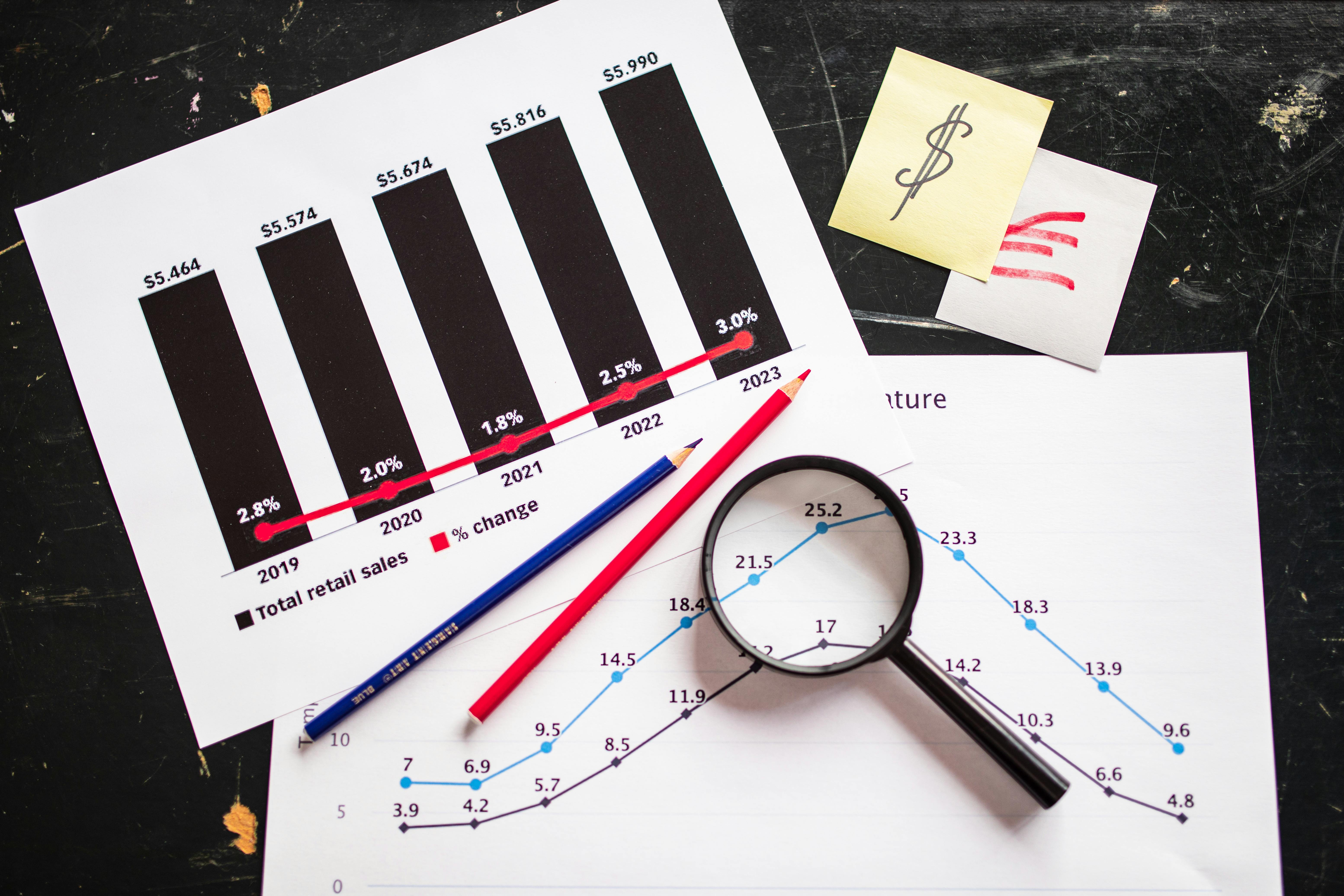Alright, so picture this: you're at the thrift store, elbow-deep in a bin of forgotten treasures. Your heart races as you pull out a vintage band tee – a real gem! You know, the kind that'll flip for a nice chunk of change online. That's the hustle, right? That’s bin picking, the classic reselling game. For a long time, that was the name of it. Hunting, finding, and flipping. It was all about having a good eye and a bit of luck.
But here's the thing, and trust me on this because I've seen it firsthand: that good old bin-picking method, while still fun, just doesn't cut it anymore if you're serious about making real money. The game's changed. It's not just about what you *find* anymore; it's about what you *know*. And what you know comes from data.
Sounds a bit fancy, right? Data-driven sourcing? Relax, it's not some rocket science. Think of it like this: instead of just hoping to stumble upon a winner, you're using a flashlight to find where the winners are hiding. You're using information, numbers, and trends to make smart choices. This isn't just about making a quick buck; it's about building a solid, profitable reselling business. And let me tell you, once you start using data, it’s like flipping a switch. Suddenly, profits you didn't even know were there start popping up.
Saying Goodbye to Guesswork: Optimizing Your Inventory
Remember that feeling when you bought a bunch of something, thinking it was a hot item, and then it just sat there? Yeah, been there, bought the un-sellable t-shirt. Or, even worse, when you had a super-popular item, but you ran out when everyone wanted it? Talk about missing out on money! These are the kinds of headaches that data-driven sourcing fixes.
It's like having a crystal ball, but instead of magic, it uses numbers. By looking at what sold well in the past, what's trending now, and even big-picture market shifts, you can predict what people are going to want next. This is called forecasting demand, and it’s super important. According to POS Nation, a company that knows a thing or two about retail, "data analytics enables resellers to forecast demand accurately, ensuring optimal inventory levels." posnation.com
Imagine this: you're selling vintage video games. Instead of just buying whatever classic titles you find at garage sales, you look at your sales data. You notice that PlayStation 2 games, especially JRPGs, have been flying off your digital shelves in the last six months. Meanwhile, those dusty Nintendo 64 cartridges you thought would be gold are just collecting dust. With this info, you know to focus your energy (and money!) on tracking down more PS2 gems.
This helps you in two huge ways:
- No more dead stock: You're not tying up your money in stuff that no one wants. That cash can go towards things that *will* sell.
- Never miss a sale: You’ll have enough of the popular items stocked up, so when someone clicks to buy, you're ready.
It's all about keeping your money moving and your customers happy. Believe me, nothing feels better than knowing exactly what to buy and seeing it disappear into a buyer's cart almost as soon as you list it. It's a real confidence booster and, more importantly, a serious profit booster.
Playing the Price Game: Smarter Pricing Strategies
Okay, so you've got your inventory dialed in. Now, how do you make sure you're getting the most money for it without scaring off buyers? This is where pricing comes in, and it's another area where data is your best friend.
Think about it: how do you usually price something? Maybe you check similar listings, see what they sold for, and then just pick a number that feels right. That's fine, but it leaves a lot of money on the table.
With data, you can do what the big stores do: dynamic pricing. It sounds fancy, but it just means adjusting your prices based on what's happening right now. Neowork's insights mention that "utilizing big data analysis allows resellers to set optimal prices by analyzing customer behavior, competitor prices, and market demand in real time." neowork.com
Let’s say you’re selling a specific brand of collectible sneakers. Instead of just setting one price and forgetting it, you'd use data to:
- See what your competitors are doing: Are they having a sale? Are they out of stock? This helps you adjust your price to be competitive without undercutting yourself too much.
- Understand demand: Is there a sudden surge in interest for these sneakers? Maybe a celebrity wore them, or a new movie came out? If everyone wants them, you can likely charge a bit more.
- Analyze buying patterns: Are people more likely to buy on weekends? Do they prefer free shipping over a lower price?
I once had a situation with some vintage concert posters. I initially listed one for what I thought was a fair price. But then, a few days later, the band announced a reunion tour. Suddenly, there was a huge buzz. By quickly checking online trends and seeing what other similar posters were doing, I realized I could *easily* double my price. And guess what? It sold almost instantly. That's the power of dynamic pricing based on real-time data. You're not just guessing; you're reacting to the market at lightning speed. It's like a game of chess, but instead of moving pieces, you're moving prices, and the goal is to checkmate your profit goals.
You're not just looking for a good price for you, but the *optimum* price that gets it sold quickly while still maximizing your profit. It’s a delicate balance, but data gives you the scales.
Winning Over Buyers: Personalized Marketing Magic
Okay, so you’ve got the right stuff at the right price. Now, how do you actually get people to *see* it and *buy* it? This is where marketing comes in, and once again, data makes all the difference.
Think about the emails you get from big online stores. They always seem to know exactly what you’re interested in, right? "Hey, we noticed you looked at these jeans, here are some similar shirts!" Or, "Here’s a discount on that vacuum cleaner you left in your cart!" It’s not magic; it’s data.
Vantage Discovery points out that "data-driven insights help resellers segment their audience and create targeted marketing campaigns. By understanding customer preferences and behaviors, resellers can deliver personalized offers and recommendations, increasing engagement and sales." vantagediscovery.com
For a reseller, this means you can stop just blasting out generic emails or social media posts and start talking directly to the people who *want* what you have.
Here’s how it works in my world:
- Audience segmentation: Instead of thinking of "customers" as one big blob, data lets you break them down. Are some customers only buying video games? Others only comic books? If so, when you get a new batch of rare comics, you only send an email to the people who've bought comics from you before, or who have shown interest in them. Why bother the video game crowd with comics? They don’t care, and your message becomes spam.
- Personalized offers: Let’s say you see a particular customer always buys your higher-end, collector-grade items. When you get something really special in, you might send them an exclusive sneak peek or a small discount just for being a loyal customer. Or maybe someone always buys from your "clearance" section. Send them a heads-up when you’re running a new sale.
I remember when I started getting a bit more serious about my reselling, I used to just post everything new on my Instagram story and hope people saw it. It worked, sometimes. But then I started looking at who was *actually* buying what. I noticed a small group of repeat buyers who were super into antique glassware. So, the next time I found a beautiful vase, instead of just posting it generally, I sent those specific customers a direct message with a picture and asked if they’d be interested before I even listed it publicly. More often than not, it would sell before it even hit my online store! That’s personalized marketing in action – it makes customers feel special, and it makes you money. It's about building relationships, not just making transactions.
Building Stronger Bonds: Improving Supplier Relationships
This one might sound a little less glamorous than forecasting demand or dazzling customers, but trust me, it’s just as important. Your suppliers are the lifeblood of your reselling business. Whether you’re buying from other wholesalers, liquidators, or even just regular folks at estate sales, they are your source. And data can help you choose the *best* sources.
Gainfront mentions that "advanced analytics provide insights into supplier performance, enabling resellers to make informed decisions about sourcing. By identifying reliable suppliers and negotiating better terms, resellers can reduce costs and enhance product quality." gainfront.com
Imagine you buy your inventory from a few different places. How do you know which ones are giving you the best deal or the best quality?
- Cost vs. Quality: Data can show you which suppliers consistently give you items that sell for higher profits, even if their initial cost is a bit more. Maybe one supplier's items always need a lot of cleaning or repair, eating into your time and profit. Data can highlight that.
- Reliability: Which suppliers always deliver on time? Which ones are easy to communicate with? Which ones offer good customer service if there's a problem? While some of this is gut feeling, if you track how many times you’ve had issues with a certain supplier, the data will paint a clearer picture.
- Negotiation power: When you know exactly how much profit you’re making from a specific supplier’s products, you have a stronger position to negotiate better prices or terms. "Hey, I’ve bought X amount from you in the last year, and I've sold Y amount for Z profit. Can we talk about a bulk discount?" This knowledge is powerful.
When I first started buying from a few different liquidators, I just went with whoever had the stuff Cheapest. But after a few months, I looked at my spreadsheet. Turns out, the "cheapest" liquidator often sent me items that were damaged or unsellable, which meant more returns and wasted time. The slightly more expensive one, however, had a much higher percentage of sellable, profitable items. The data showed me that the initial low cost wasn't worth the headache later on. It helped me ditch the bad supplier and focus on the reliable, high-quality one, even if I paid a little more upfront. It saved me so much grief and actually boosted my overall profits in the long run.
Staying Ahead of the Game: Leveraging Technology for Competitive Advantage
This is where it gets really exciting. We're talking about artificial intelligence (AI) and machine learning (ML), big words for essentially really smart computer programs that can spot patterns and make predictions faster and better than any human ever could.
Remember what Vantage Discovery said? "Integrating artificial intelligence and machine learning into sourcing strategies allows resellers to predict market trends and customer preferences. This proactive approach enables resellers to stay ahead of the competition and capitalize on emerging opportunities." vantagediscovery.com
For you, the reseller, this means:
- Predicting trends: Imagine knowing what’s going to be the next big thing *before* everyone else. An AI could analyze social media buzz, news articles, fashion trends, and even subtle shifts in search queries to tell you that, say, 90s streetwear is about to explode again, or that a certain anime character's merchandise is going to be in huge demand. This lets you source those items early, while they're still cheap, and sell them for maximum profit when the craze hits.
- Spotting emerging niches: Maybe there's a small but growing interest in unique artisan crafts from a specific region. AI can pick up on these small signals far sooner than you or I ever could, highlighting potential new product categories for you to explore.
- Automated insights: Some tools can even suggest items for you to source based on your past sales, current trends, and profitability. It's like having a super smart assistant giving you ideas.
I've been playing around with some of these tools myself, nothing too complicated, but even basic AI-powered keyword research tools have shown me related search terms I would have *never* thought of. For example, if I'm selling vintage lamps, the tool might suggest that people are also searching for "Edison bulb industrial decor" which tells me to not just focus on the lamps themselves, but the whole aesthetic surrounding them. It opens up new avenues for sourcing and listing.
This isn't just about catching up; it's about getting ahead. While other resellers are still digging through bins and hoping for the best, you’re using smart tech to pinpoint the next goldmine. It’s like having a treasure map in a world where everyone else is just randomly digging.
The Bottom Line: Your Path to Hidden Profits
Look, I started this whole reselling thing just like many of you – with a hopeful heart and a keen eye for a good deal. And those beginnings, those moments of discovery, are still a huge part of the fun. But if you want to move beyond just a fun hobby and turn reselling into a serious source of income, you *have* to embrace data.
It's not about losing the thrill of the hunt; it's about making your hunts more successful. It's about working smarter, not just harder. By understanding and using the data that's all around you, you're not just guessing anymore. You’re making informed decisions about:
- What to buy (inventory)
- How much to sell it for (pricing)
- Who to sell it to, and how (marketing)
- Where to get it from (suppliers)
- And even what the future holds (trends)
This isn't some secret formula; it’s just common sense applied with modern tools. And honestly, it’s not as intimidating as it sounds. Start small. Look at your past sales. What sold fast? What didn’t? Just that simple analysis is a step into data-driven sourcing.
The e-commerce world is competitive, and it’s only getting more so. The resellers who aren't just relying on luck, but on solid information, are the ones who are going to find those hidden profits and build truly sustainable, thriving businesses. So, put down the bin for a second, open up a spreadsheet, and get ready to unlock a whole new level of reselling success. Your bank account will thank you.



